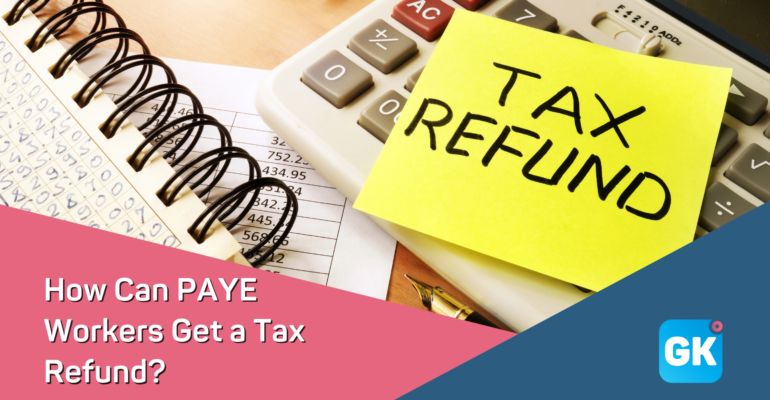How Can PAYE Workers Get a Tax Refund?

If you’re a PAYE worker, there are various ways to claim back some tax from Revenue. Many reliefs and schemes often go unnoticed. Here are some options:
Medical Expenses Relief:
If you have paid for eligible health expenses, you are entitled to claim relief at your standard tax rate of 20%. Day-to-day medical expenses such as GP visits and prescription fees are often overlooked but can add up to a substantial amount over a year. Research from Taxback.com shows that only around four in 10 Irish people claim tax relief on the cost of their medical expenses.
Flat-rate Expenses Relief:
This is a type of tax relief for PAYE workers in specific trades and professions where a person can reduce the amount of taxable income they have each year on the cost of certain expenses. These are commonly known as “uniform allowance”. The amount that can be claimed depends on the job, as the rates are set by Revenue each year for various classes of employees. A full list of jobs and associated reliefs can be found online at Revenue.ie. More than 180 different occupations are entitled to flat-rate expenses of amounts between €21 and €2,476 a year, with an average of €247. However, flat-rate expenses are not automatically deducted from pay, so people have to be proactive and claim them.
E-Worker Relief:
If a person works from home, they can apply for tax relief on the cost of utilities and other expenditures that might be incurred over their working year. An employer can make a voluntary payment to an employee of €3.20 per workday without deducting any PAYE, PRSI or Universal Social Charge (USC). This payment is intended to cover expenses such as heating and electricity costs. There is no obligation on the employer to make this payment, and many employers are not in a financial position to provide their employees with this relief. If you are an e-worker and your employer does not pay you the tax-free amount of €3.20 a day, you can claim e-worker tax relief instead. Revenue will allow 30% of your utility expenses (heating, electricity and broadband costs) as an e-working expense. These expenses will be apportioned to the number of days you worked from home in the year.
Cycle-to-Work Scheme: This was recently increased from €1,000 to €1,250 and is €1,500 for electric bikes. Taxpayers can avail of the exemption once in any four years.
Home Carer Tax Credit: This can be claimed by a partner staying at home and caring for their children. The value of the credit for 2022 is €1,600. It can be claimed either if the spouse is at home full-time or if the spouse works part-time and earns less than €10,400 (if they earn between €7,200 and €10,400 they will get a portion of the tax credit).
Tuition Fees: If you are paying for tuition fees for a full- or part-time third-level course, be it for yourself or your child, you may be entitled to tax relief on the cost. You may also be eligible for tax relief on certain Solas-approved foreign language or IT courses if they are of less than two years’ duration.
Nursing-Home Relief: Anyone paying nursing-home fees, either for themselves or someone else, is eligible to claim relief at their marginal rate of tax. A person can claim up to 40% relief on nursing home or home-care costs, up to a maximum of €75,000.
Rent-a-Room Relief: When someone lets a room in their sole or main residence as residential accommodation, the income may be exempt from income tax where the gross rent received is below €14,000. Airbnb-type income will not qualify for rent-a-room relief.
Rent Tax Credit: The rent tax relief is worth up to €500 a year and up to €1,000 a year for married couples and civil partners. It has been introduced to help ease the pressure of record highs in the cost of accommodation. For 2024 and 2025, the credit will increase to €750 for an individual and €1,500 for a couple.
Incapacitated Child Tax Credit: This is available to the parent of a child who is permanently incapacitated, and where there is a reasonable expectation that the child will be unable to maintain themselves when over 18. This is a very valuable credit currently set at €3,300, but it will increase to €3,500 in 2024. Taxback.com said it has many customers who receive a diagnosis of autism for their child, but do not know they are eligible for this credit and can claim it retrospectively for the past four years or the year of birth of their child (whichever is the most recent).
For further assistance and expert guidance with your tax refund, don’t hesitate to contact us at Gallagher Keane. We are here to help! 📞


